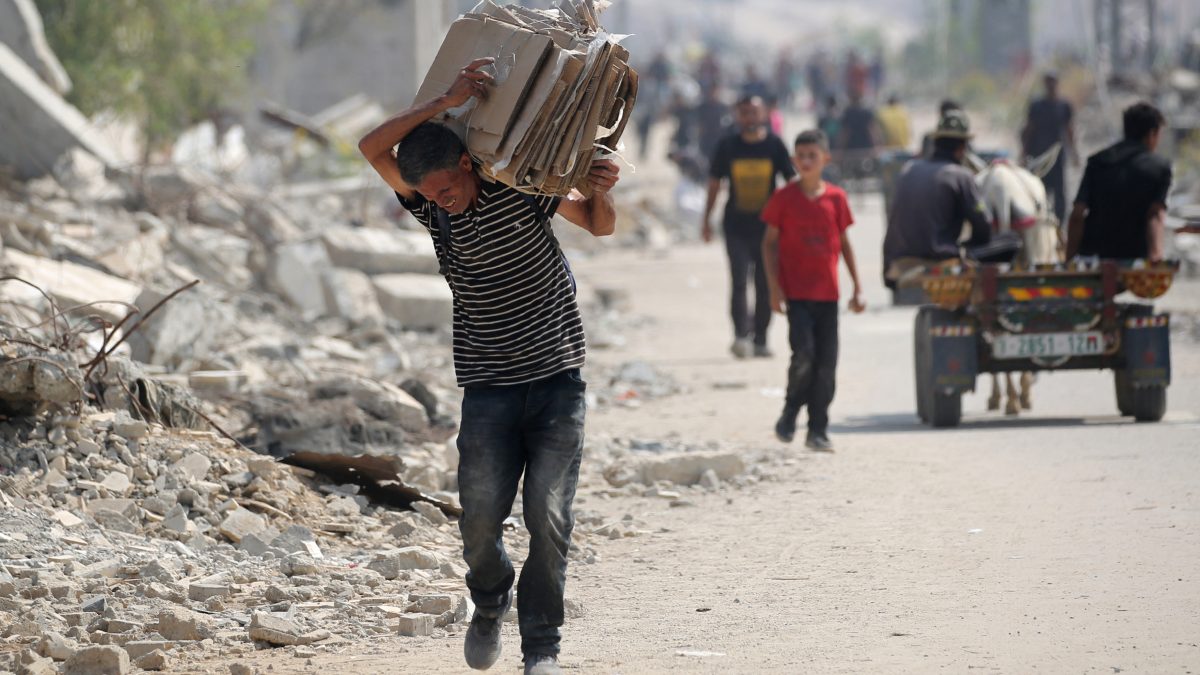Israel has announced daily pauses in military operations across parts of the Gaza Strip to facilitate humanitarian access, as global concern mounts over the worsening crisis in the enclave.
The United Nations’ aid chief welcomed Israel’s announcement Sunday of secure land routes into Gaza for humanitarian convoys, and said the UN would try to reach as many starving people as possible.
“Welcome announcement of humanitarian pauses in Gaza to allow our aid through,” UN emergency relief coordinator Tom Fletcher said on X.
The Israeli military said it would halt activity between 10 a.m. and 8 p.m. (0700–1700 GMT) in designated areas: Al-Mawasi, Deir al-Balah, and Gaza City. Secure corridors for aid convoys will also be operational from 6 a.m. to 11 p.m.
The move comes as the United Nations and international aid agencies report severe hunger and rising malnutrition among Gaza’s 2.2 million residents.
According to Gaza’s health ministry, at least 127 people, including 85 children, have died from malnutrition since the war began. On Saturday, five-month-old Zainab Abu Haleeb died of severe acute malnutrition at Nasser Hospital in Khan Younis, further underscoring the gravity of the situation.
The UN’s Office for the Coordination of Humanitarian Affairs (OCHA) said conditions in Gaza were already “catastrophic and deteriorating fast.”
OCHA said constraints imposed by the Israeli authorities had hampered humanitarians’ ability to respond.
Impact Shorts
More ShortsIt said that on Thursday, for example, out of 15 attempts to coordinate humanitarian movements inside Gaza, four were “outright denied”, with another three impeded.
In parallel, Israel began airdropping aid packages and the Egyptian Red Crescent dispatched over 100 trucks carrying 1,200 metric tonnes of food via the Kerem Shalom crossing. Israel says it supports aid deliveries but must maintain oversight to prevent supplies from reaching militant groups. It also insists that sufficient food has been allowed into Gaza and accuses Hamas of obstructing distribution.
The humanitarian pause follows growing international alarm, including calls for action from French President Emmanuel Macron, who has signalled intentions to recognise a Palestinian state. Meanwhile, ceasefire negotiations appear to have stalled, with Israel and the United States blaming Hamas for a lack of commitment.
Within Gaza, reactions to the pause have been mixed. While some residents expressed cautious relief, many emphasised the need for a permanent end to hostilities. “We hope today marks a first step in ending this war that burned everything up,” said Tamer Al-Burai, a local business owner. Others voiced concern over the delivery methods, particularly the risks posed by aid airdrops.
The Israeli government’s decision has also drawn criticism from far-right National Security Minister Itamar Ben-Gvir, who said he was not consulted and accused the leadership of capitulating to Hamas.
The war, which began on 7 October 2023 when Hamas-led fighters attacked southern Israel, has since claimed the lives of nearly 60,000 people in Gaza, according to local health officials, and left much of the territory in ruins.


)

)
)
)
)
)
)
)
)



